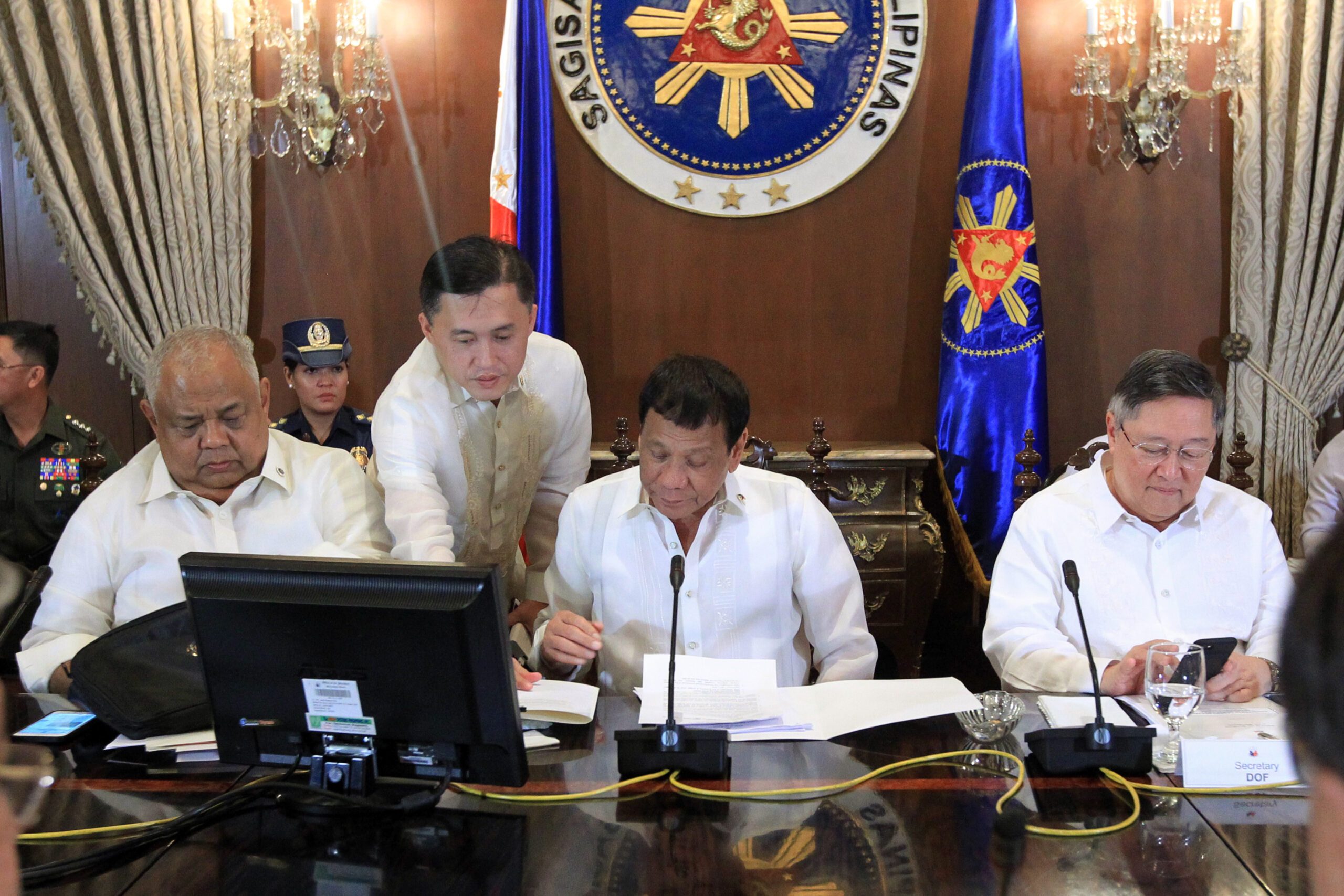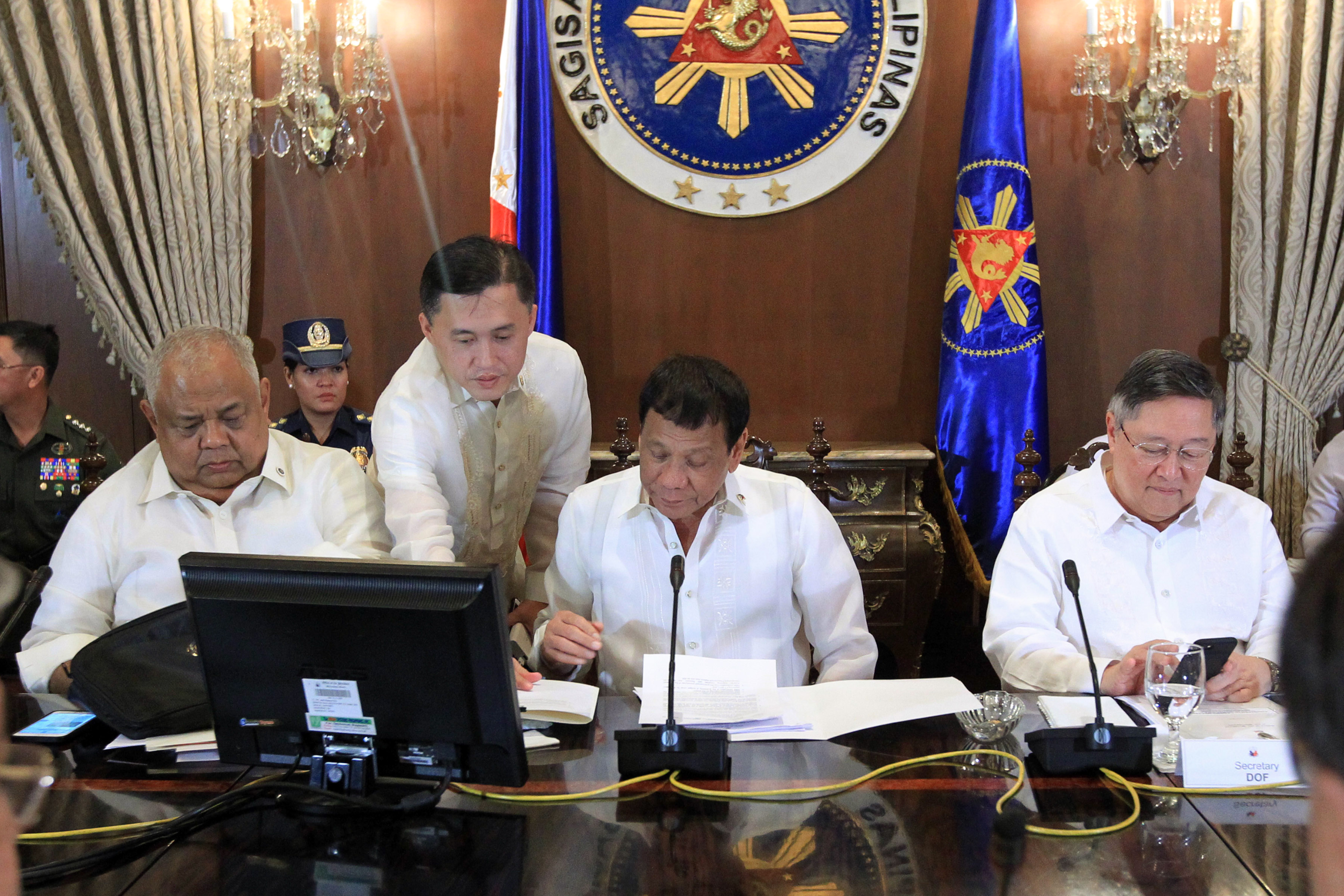SUMMARY
This is AI generated summarization, which may have errors. For context, always refer to the full article.


MANILA, Philippines – Government agencies planning to negotiate or sign international agreements and foreign loans and grants are required to secure prior written approval from President Rodrigo Duterte, Malacañang reminded offices under the executive branch.
Citing the need for improved “coordination,” Malacañang issued Memorandum Circular No 16 dated April 11, but released only on Tuesday, April 18. It was signed by Executive Secretary Salvador Medialdea by authority of the President.
MC 16 directed govenment agencies, corporations, and state universities and colleges to observe the proper process of seeking “requests for authorization to negotiate and sign international agreements, and agreements covering borrowings, guarantees, and foreign grants.”
In issuing MC 16, Malacañang reiterated that “the President is the sole organ of the country’s foreign relations and the constitutionally assigned architect of its foreign policy.”
“Authorizations for the negotiation and signing of international agreements, or agreements covering borrowings, guarantees, and foreign grants shall be granted in writing through Full Powers, Special Authority, Letter or Memorandum signed by the President, or the Executive Secretary ‘by authority of the President,'” MC 16 said.
Malacañang ordered government agencies to coordinate with the Department of Foreign Affairs (DFA) before negotiating or signing an international agreement.
If the agreement deals with foreign grants or borrowings, the agencies must coordinate with the Department of Finance (DOF).
MC 16 said the lead agency must secure an authorization from the OP before it enters into a negotiation or it signs a treaty or executive agreement, “as well as agreements covering borrowings, guarantees, and foreign grants…unless the DFA or the DOF determines that the nature or scope of the agreement does not require such authorization.”
Agencies seeking the President’s approval for an international agreement must submit to the OP all relevant papers backed by complete staff work at least 10 working days before their desired date of release.
Asked why the President issued the memo, Medialdea said, “It’s just to remind heads of agencies about these formalities before negotiating and concluding bilateral agreements.”
As the chief architect of Philippine foreign policy, the Chief Executive does have the authority to decide which international agreements the country enters into.
The President’s approval is required before a government agency signs any agreement.
However, for a treaty to become internally binding, Senate concurrence is required. Article VII, Section 21 of the 1987 Constitution states that “no treaty of international agreement shall be valid and effective unless concurred in by at least two-thirds of all the members of the Senate.”
In February, a majority of senators filed a resolution declaring that the Senate has a say in the termination of any treaty or international agreement.
“The power to bind the Philippines by a treaty and international agreement is vested jointly by the Constitution in the President and the Senate,” said the resolution filed by 14 senators, also citing the principle of checks and balances in government.
“A treaty or international agreement ratified by the President and concurred in by the Senate becomes part of the law of the land and may not be undone without the shared power that put it into effect,” it added.
The Senate resolution was filed after Duterte said he wanted to scrap the Philippines-US Visiting Forces Agreement and withdraw from the International Criminal Court, which the Philippines entered into by ratifying its founding treaty, the Rome Statute.
Liberal Party senators earlier said they wanted to probe deals entered into by the Duterte administration and China, including agreements covering $6 billion in loans and $3 billion of credit through private Chinese banks. – Rappler.com
Add a comment
How does this make you feel?
There are no comments yet. Add your comment to start the conversation.